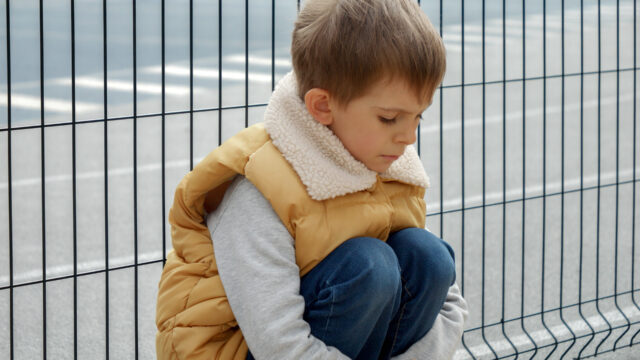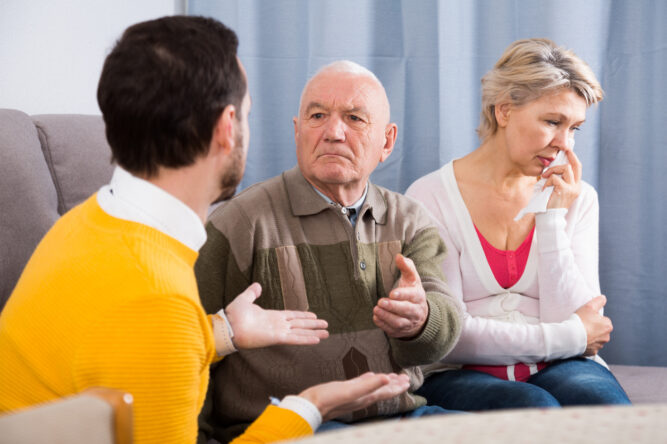
When people think of childhood trauma, they often picture something extreme like abuse, violence, or obvious neglect. However, the reality is more layered than that. Trauma isn’t always loud, and it doesn’t always leave visible scars. What keeps many people from healing isn’t just what happened to them. It’s the myths they’ve been told (or tell themselves) about what “counts” as trauma and how they’re supposed to deal with it. Here are some common beliefs that end up keeping people from moving forward.
“If I can’t remember much, it must not have been that bad.”
Memory and trauma don’t always play nicely together. Some people remember every detail; others have huge blanks. Your brain sometimes buries memories to keep you functioning. It’s a defence mechanism, not a sign that nothing happened. Just because it’s fuzzy doesn’t mean it didn’t affect you. How something shaped your nervous system, sense of safety, or relationships is what matters, not whether you can recall it perfectly.
“Other people had it worse, so mine doesn’t count.”
Comparison is one of the fastest ways to invalidate your own pain. Just because someone else experienced more obvious or intense trauma doesn’t mean yours didn’t leave a mark. Trauma isn’t a competition. It’s not about who suffered most; it’s about recognising that something in your past disrupted your emotional development or sense of security, and that matters too.
“If I turned out successful, I must’ve been fine.”
High-achieving adults often use their success as proof that they weren’t really affected, but sometimes that drive to succeed was built on survival mode, not self-worth. Thriving in one area doesn’t cancel out pain in another. You can hold it together in public and still feel fractured in private—both stories can exist at once.
“It only counts as trauma if it was done on purpose.”
Some people think trauma only counts if someone meant to hurt them. However, plenty of trauma comes from what wasn’t done—the emotional needs that went unmet, the safety that wasn’t there, the care that never arrived. Intent matters legally, but when it comes to healing, it’s the impact that counts. Even loving, well-meaning parents can cause harm if they were emotionally unavailable or inconsistent.

“Talking about it means I’m blaming my family.”
This one keeps a lot of people quiet. They don’t want to seem ungrateful or throw anyone under the bus, so they downplay what happened or avoid it completely. However, acknowledging your pain isn’t the same as blaming. You can love people and still recognise that parts of your upbringing hurt you. Both things can be true.
“If I’m not constantly upset, I must be over it.”
Some trauma doesn’t show up as sadness. Instead, it hides in perfectionism, people-pleasing, anxiety, or the inability to relax. You might not feel broken, but that doesn’t mean it’s all healed. Healing isn’t just about feeling better; it’s about recognising patterns that don’t serve you anymore, even if they helped you survive at one point.
“I should be over it by now.”
There’s no expiration date on healing. Some things don’t hit you until years later, especially when you start trying to build healthy relationships or raise kids of your own. Healing happens in layers. Just because it’s resurfacing now doesn’t mean you’ve failed. It means you’re ready to process it in a deeper way.
“It wasn’t trauma—it was just strict parenting.”
Many people minimise their experiences because they grew up in households that framed control, emotional distance, or fear as normal discipline. “That’s just how things were back then.” However, if that environment left you anxious, disconnected, or constantly walking on eggshells, it likely shaped you in ways that still play out now. It’s okay to call it what it was.

“I don’t want to dwell on the past.”
This sounds sensible, but often, what people mean is, “I don’t want to feel what I felt back then.” Avoidance might help short term, but it usually just pushes things down until they leak out somewhere else. Looking back isn’t about blame or getting stuck. It’s about understanding where your patterns started so you can stop repeating them unconsciously.
“If I heal, I’ll forget where I came from.”
Some people cling to their pain because it feels tied to their identity. They’re afraid that letting go means forgetting the reality of what they survived or softening towards people who hurt them. The thing is, healing doesn’t erase the past—it gives you space to grow beyond it. You can honour your story without letting it define everything about you.
“It was just a phase—it didn’t last long.”
The length of time doesn’t always match level of impact. Sometimes, a single season of instability or fear is enough to shape how you see relationships, safety, or yourself. Just because it didn’t drag on for years doesn’t mean it didn’t leave a lasting emotional imprint. The body remembers, even if your mind tries to move on.
“I didn’t get hit or abused, so it couldn’t have been trauma.”
This belief keeps a lot of emotional neglect and subtle mistreatment invisible. Just because there was no physical harm doesn’t mean there was no damage. If you grew up feeling unseen, unheard, or constantly trying to earn affection, that shapes you. The absence of care is just as powerful as the presence of harm.

“Therapy’s only for serious trauma.”
Many people think they have to reach a crisis point before getting help. However, therapy isn’t just about fixing something. It’s about understanding yourself, noticing patterns, and building a more peaceful life. You don’t need a dramatic backstory to deserve support. If you’re struggling, that’s enough of a reason to get help, no dramatic justification needed.
“If I bring it up now, people won’t believe me.”
This fear is especially common if your childhood looked “fine” from the outside. If your family was respected or your parent was charming, you might feel like no one would believe your version of things. The thing is, your experience is still valid, even if no one else saw it, even if it looks confusing on paper. You don’t need outside approval to start healing from what your younger self went through.




